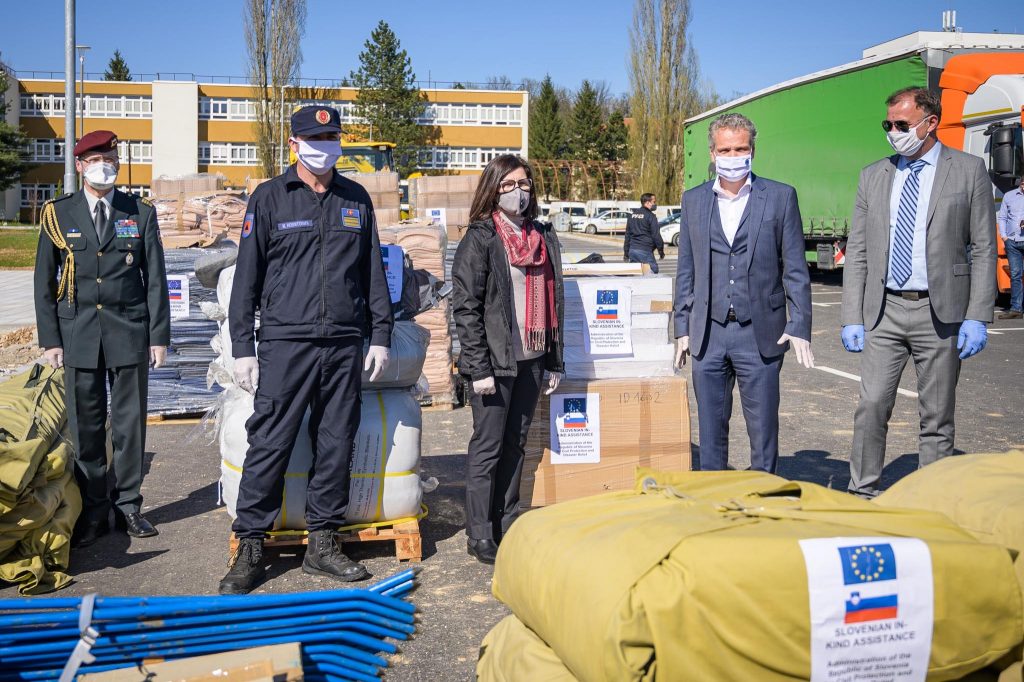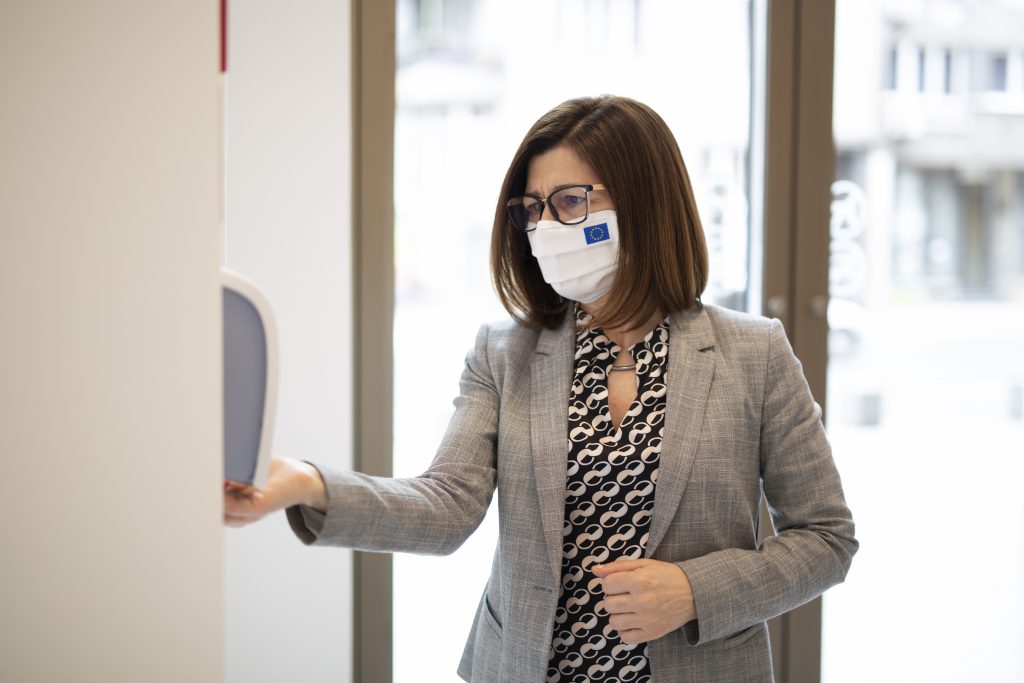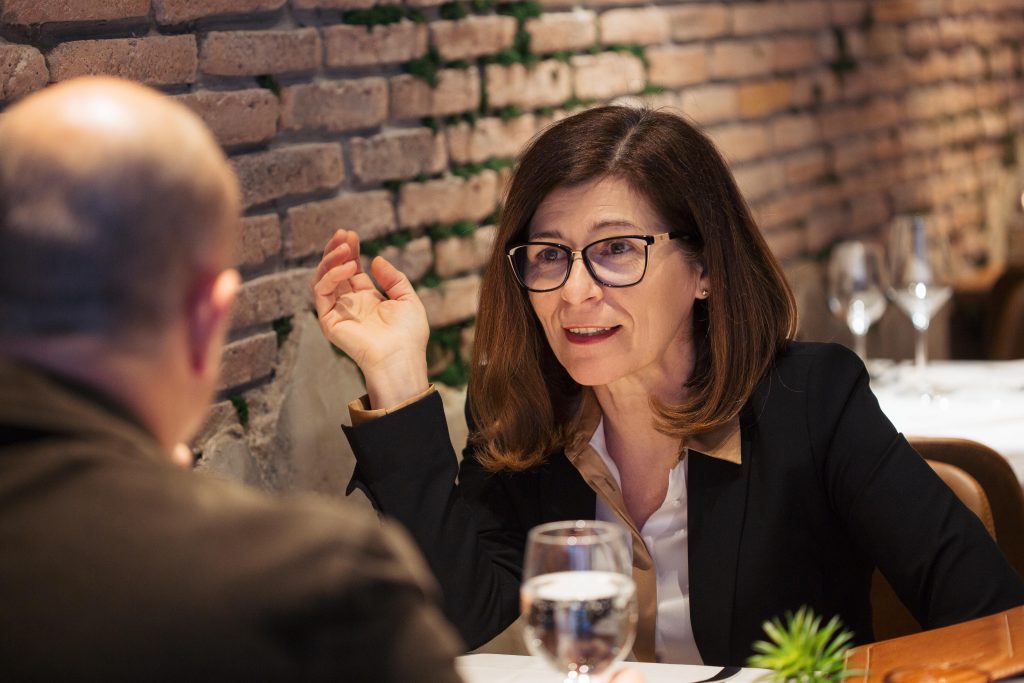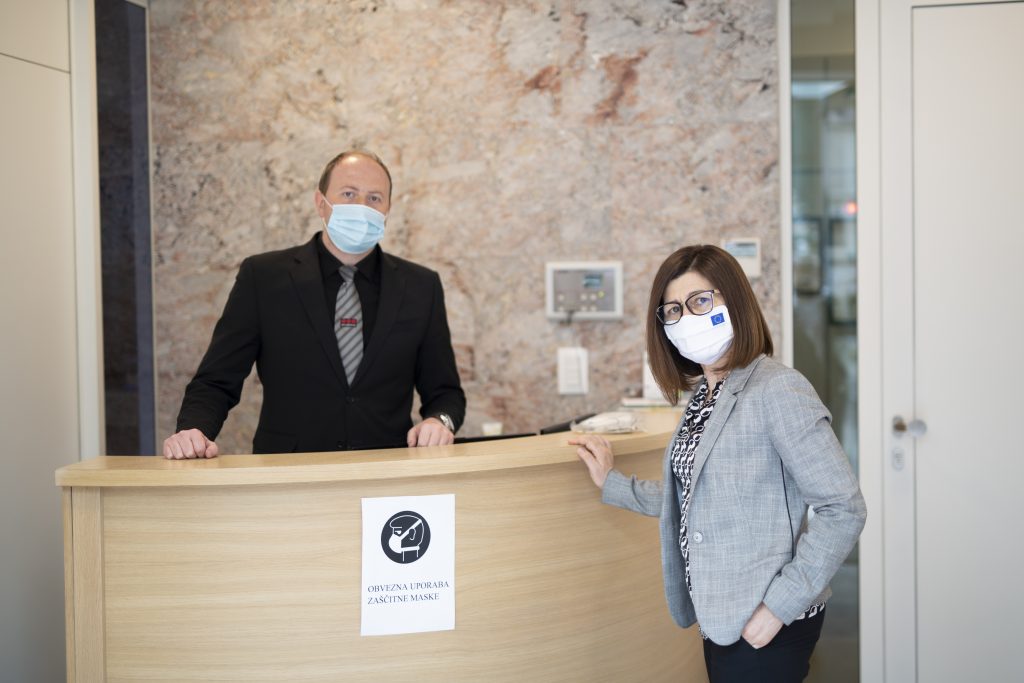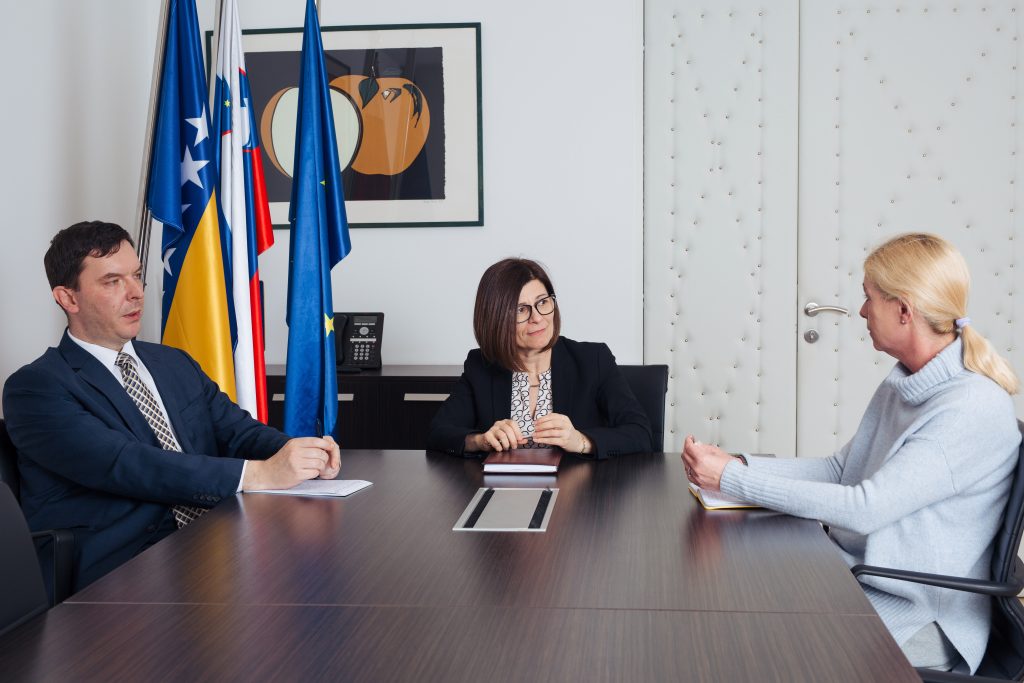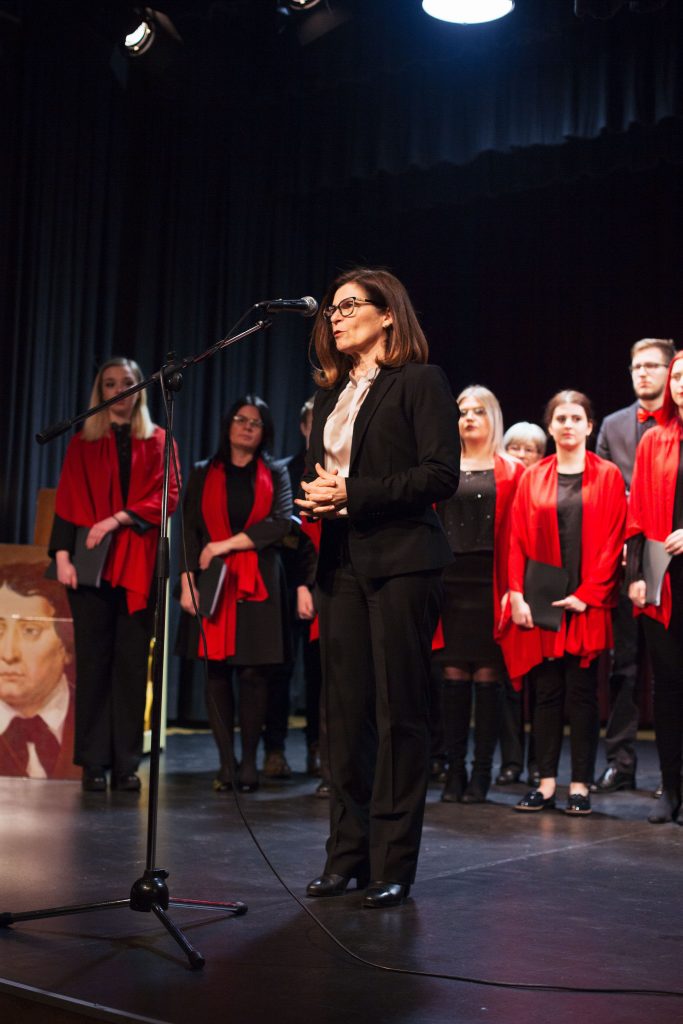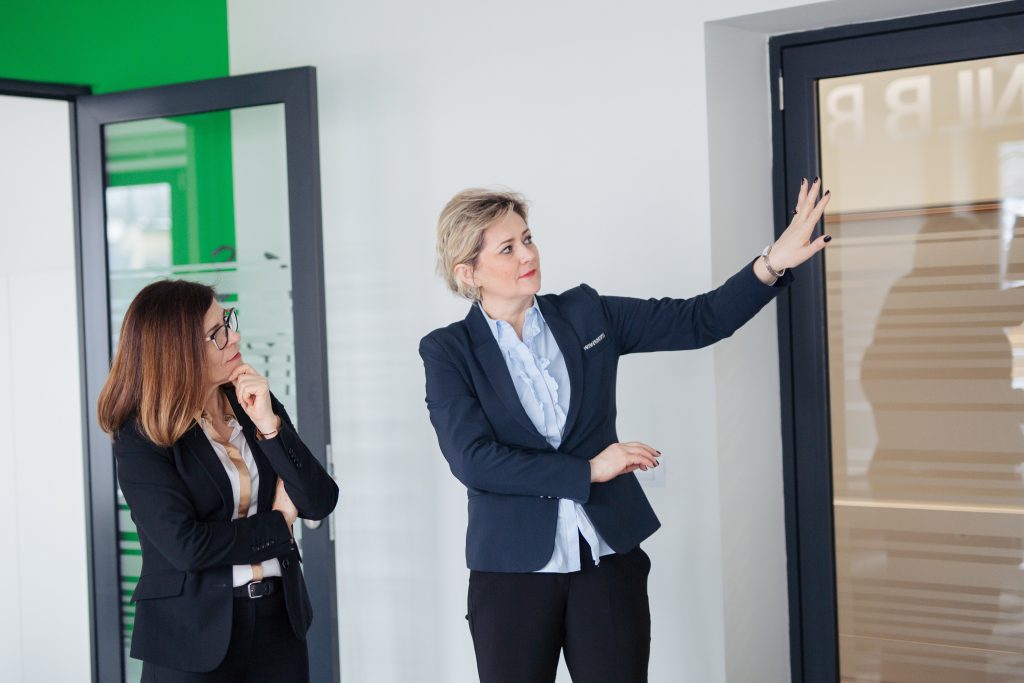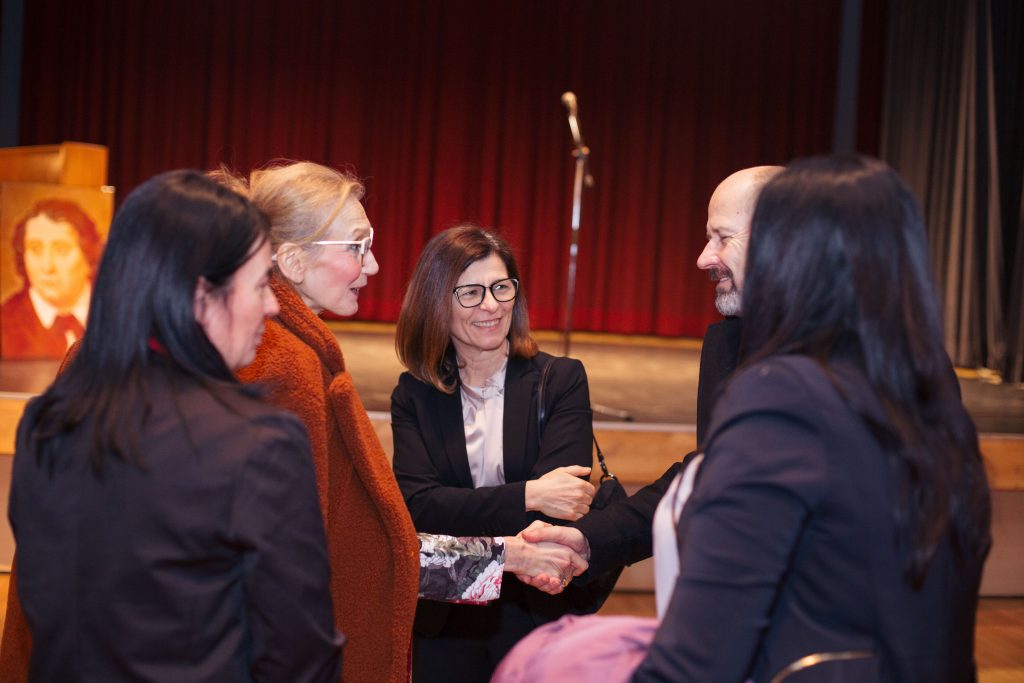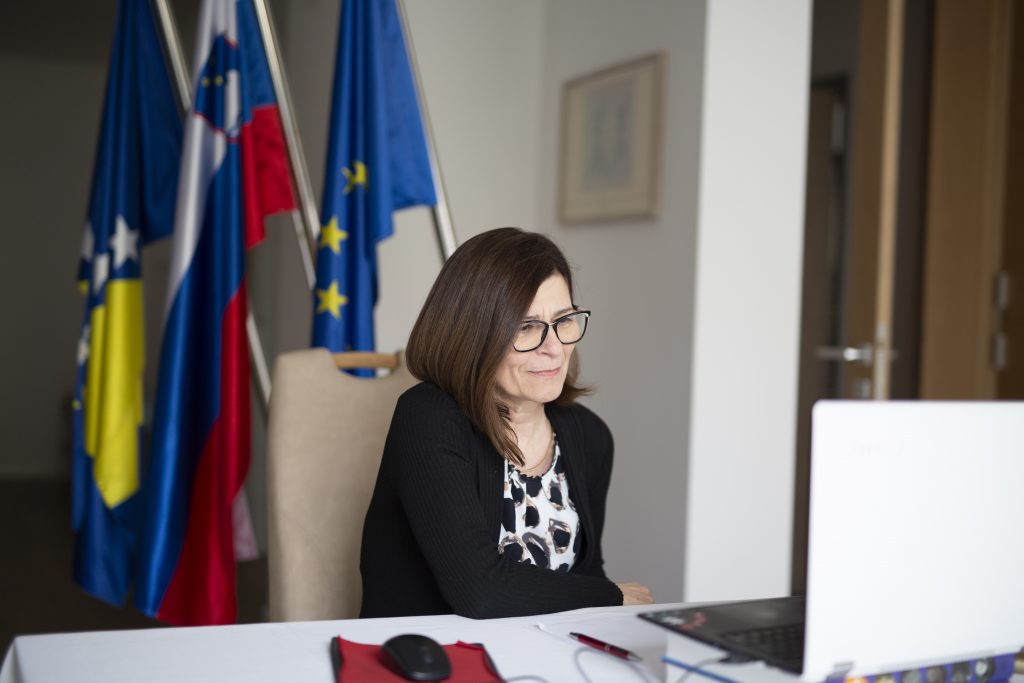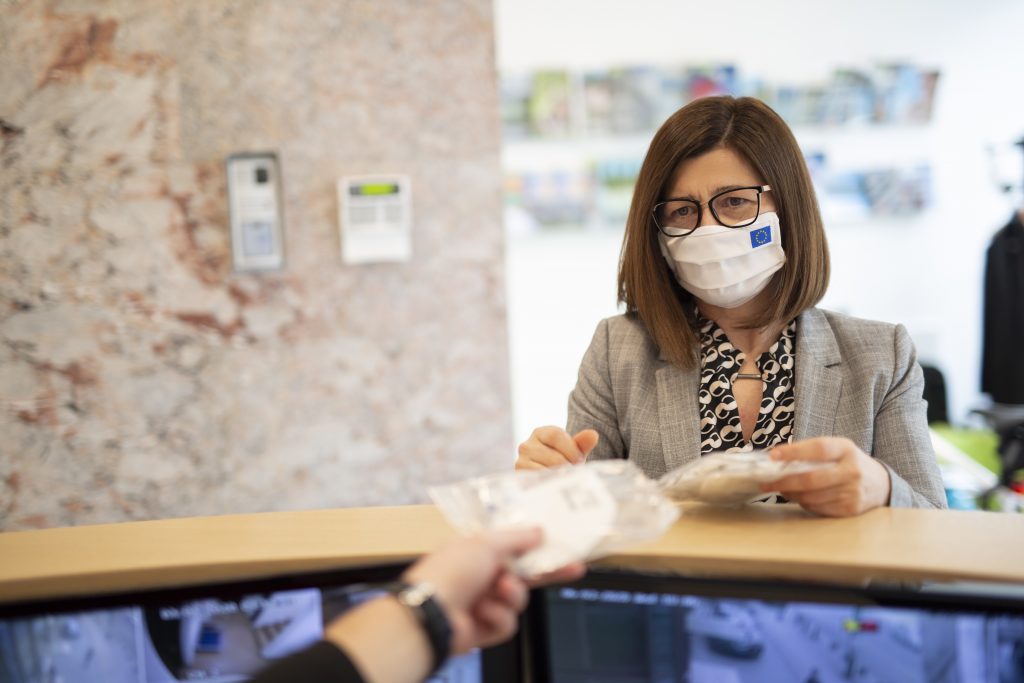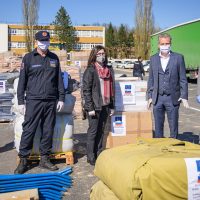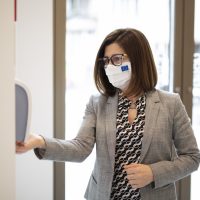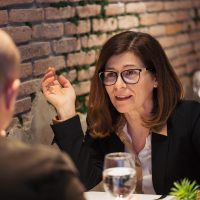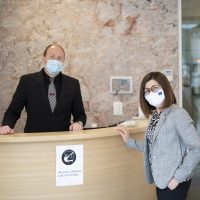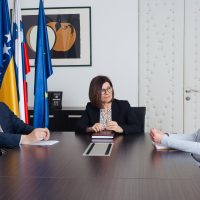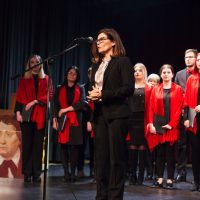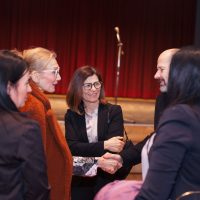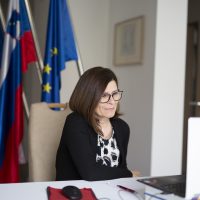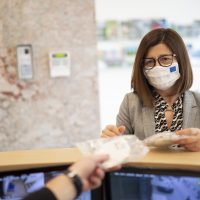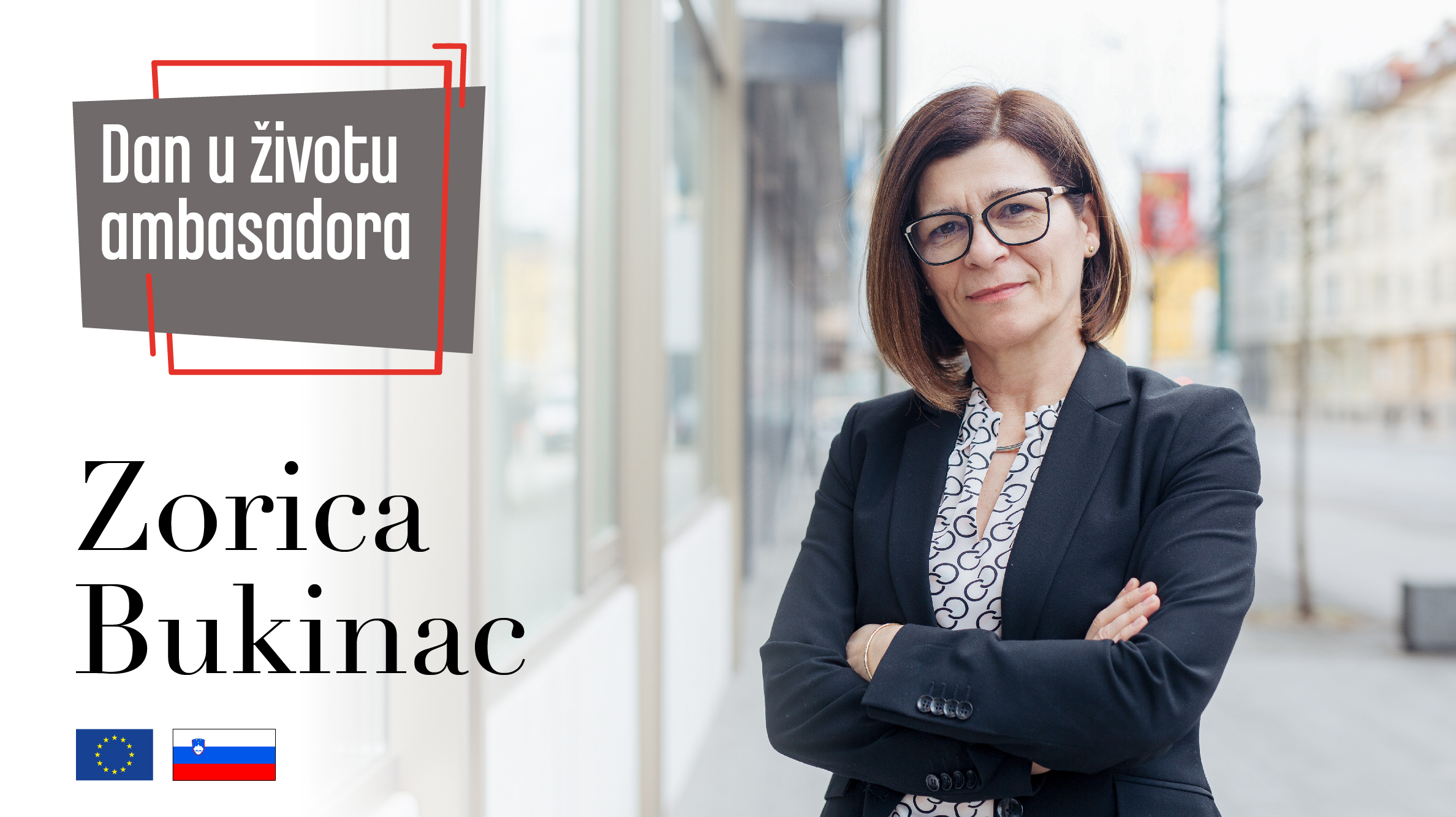
A Day in the Life of an Ambassador Zorica Bukinac
There are no two typical days in the life of Zorica Bukinac, Ambassador of Slovenia to Bosnia and Herzegovina. From meetings in the Embassy with members of the international community […]
There are no two typical days in the life of Zorica Bukinac, Ambassador of Slovenia to Bosnia and Herzegovina. From meetings in the Embassy with members of the international community and the Delegation of the European Union to Bosnia and Herzegovina to cultural events and observances of Slovenian anniversaries, the Ambassador’s schedule is filled with challenging tasks related to maintaining and enriching the long-standing friendship and connectivity of Slovenia and Bosnia and Herzegovina. What does a day in her life look like?
There is no such thing as a “typical day”. Since I arrived in Sarajevo, no two days have been the same. What most of my days have in common though is that my workday begins well before I arrive at my office in the embassy. I review the daily news while I have my morning coffee at the residence. When I arrive at the office, I’m already up to date with most of the morning news but my colleagues always have things to add, as they read print media. While we drink our coffee, made in the traditional Bosnian way, we will comment on the weather and news from home. Then we read our emails, make phone calls, and have our morning meetings. Often these meetings will take place during lunch, with colleagues from other embassies, and representatives of international organisations or the EU Delegation. Of course, we must also report to our own capital. My colleagues and I prepare reports, comments and analyses of all areas of cooperation between Slovenia and Bosnia and Herzegovina. Believe me when I say that cooperation between our countries takes place in all areas of life and at multiple levels.
The embassy is an important stop for all Slovenian businesspeople who are active in Bosnia and Herzegovina or wish to be. Development cooperation projects, education and culture are areas in which my colleagues and I contribute to ensure good planning, ensure progress and enable success. Important aspects of our work are carried out by the consular department in Sarajevo and the office in Banja Luka, and the latter is a mandatory stop whenever I visit Banja Luka. Late afternoons often turn into evenings, as many of us will still be in our offices at the embassy. Often, the evenings are dedicated to paying tribute to an anniversary, or toat a reception celebrating a national holiday of Bosnia and Herzegovina or one of the partner countries. Sometimes, however, we have the honour of celebrating Slovenian holidays with Slovenians and fellow citizens who live in Bosnia and Herzegovina and are members of Slovenian associations. February 8th, Slovene Cultural Holiday, is a particularly special occasion. The workday sometimes ends in the late evening, as there is always something going on in Sarajevo.
The job of an Ambassador has in many ways changed in the last few decades. From a profession that was not intended to be conducted in the public eye, nowadays Ambassadors rely on maintaining good relations with the media and attend various public events, which is challenging in itself.
Representing our country, and reporting and conveying messages lie at the core of our traditional mission. However, technological development has, over time, and even before the COVID-19 crisis, brought about changes that affect the diplomatic profession. Indeed, I find that no such developments have brought about as much change as the IT revolution. From this perspective, the impact modern digitalisation has had on the foundations of diplomatic work, for communication and information, is incalculable. Information travels fast and on channels that do not belong to the domain of the government, unlike diplomacy itself. Nevertheless, technological developments have not altered the nature of diplomatic work and its practice as dramatically as one would expect. This is a kind of paradox.
Finding a balance is the biggest challenge, and perhaps at the same time this is the way diplomacy has, through all these technological changes, maintained its nature, adapted, and will continue to adapt. While some wonder whether diplomacy has become obsolete given these conditions, I am convinced of the contrary by the work we do in Bosnia and Herzegovina. Even though we are developing economic, cultural, digital, and environmental diplomacy, finding the middle ground remains at the core of our activity.
What I consider to be specific to the environment here is the public exposure of diplomats. Again, in the past, our profession was a prestigious but discreet activity, hidden from the public eye, or at least not at the centre of public attention. Today, diplomats are at the core of public and media interest, not as an exception but rather as a rule. I was a little surprised to see how diplomats are a part of everyday media coverage and an object of interest not only to some but to the wider general public. To me, this presents a particular challenge, as public exposure does not necessarily mean approval. Thus, diplomacy is constantly under the critical eye of the public, and this seems to be a paradox of this profession since its true nature is quite different. However, I am always pleased to accept invitations to address the participants of various conferences or events or to talk about Slovenia’s experience in areas of interest to interlocutors in BiH and vice versa.
Much of this text was prepared before the COVID-19 pandemic. Most of what was said remains true despite the crisis. What has suffered as a result of the crisis, however, is the aspect of my work that excites me the most: meeting people, exchanging experiences and supporting the good relations between Slovenia and Bosnia and Herzegovina.
The part of my work I enjoy the most and my key tool, personal communication and contact, disappeared overnight and was suddenly no longer an option.
As I write this, it is not yet clear how profound the changes will be in all areas of our lives, much less what the consequences will be for the way we work. But one of the first things we established was communication and a sense of community and connection. Overnight we switched to other forms of communication and the protocols for the use of means of communication changed. In a short time, a big leap has been made in the use of video applications. I can’t stress enough how much I missed, and still miss, a simple handshake when meeting people. The central category during the most critical days was solidarity.
Our two countries, their people, their organisations, both governmental and non-governmental, their businesses and their municipalities, have been interwoven for decades. I am grateful for the opportunity to maintain and contribute to the further development of good relations between Bosnia and Herzegovina and Slovenia, as are my colleagues.
During the COVID-19 crisis, the strength of these ties was confirmed and further consolidated. Slovenia, as always, was among the first who came to BiH’s aid with material resources.
I have been here for just over two years. As I stated previously, no two days have been the same.
At first, it seemed that this would remain the case and that the diverse nature of of my work would become what I will remember most about my time in BiH. The COVID-19 epidemic and crisis will remain in my memory as an important milestone I experienced right here in BiH. This is not the first crisis I experienced and tackled during my career. However, I am determined not to let it overshadow all the other impressions and experiences I gathered from working, living, and meeting people in BiH.
I will remember this post for the great variety of tasks and for being able to engage and make use of all of the knowledge, skills, and experiences I acquired in my career so far, including those concerning crisis response. In doing so, it is crucial to not lose sight of the strategic goal. This is why I am already focused on the next chapter. Namely, during my posting, Slovenia will hold the Presidency of the Council of the European Union. Therefore, I would like to see Bosnia and Herzegovina embark on the path to EU membership, the path of stability and prosperity.
Ambassador Bukinac describes Bosnia and Herzegovina as warm-hearted, rich and diverse and, as someone who has explored the country and its rich nature, remains fascinated by its rich culture and tradition. For incoming diplomats, she advises persistence, knowledge and understanding in order to cope with the challenges of the job.
I come from a country that, due to its size and specific circumstances, nurtures versatility in its diplomatic service. Therefore, there are multiple paths to a career in diplomacy. Modern countries require a great deal of knowledge, and diversity of talents and skills from their diplomats. I can confirm that whoever described a diplomat as someone who thinks twice before they say nothing was correct.

